YourGPT vs Ada CX: Best AI Platform for Businesses in 2026

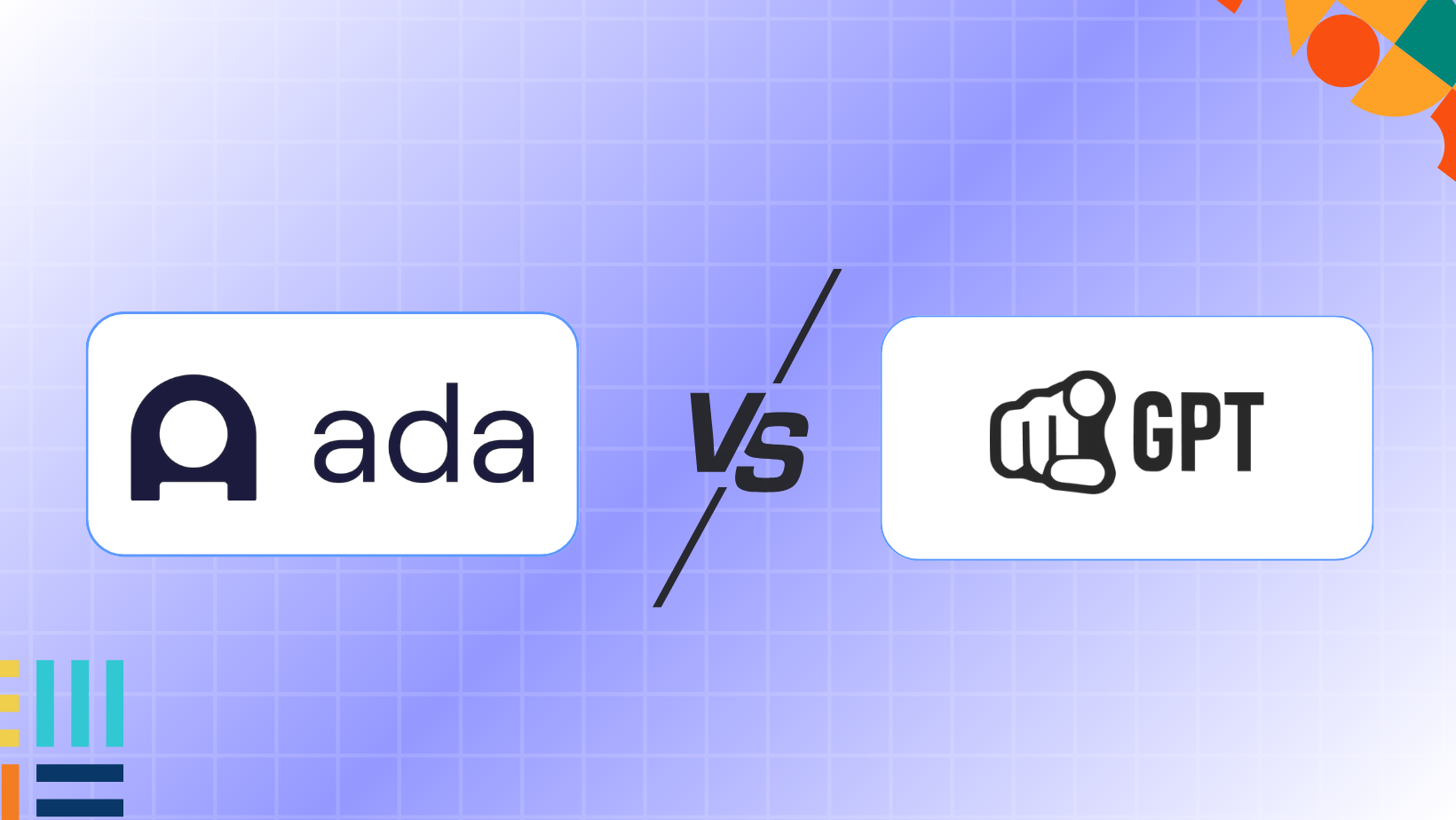
If you are evaluating YourGPT vs Ada for customer service automation, you are comparing two of the popular platforms in 2026.
Today’s businesses expect more from their chatbots than canned replies. They need seamless conversations, task automation that saves time, and the ability to scale across channels as customer needs grow.
YourGPT is built as an advanced AI platform for support, sales, and automation, giving businesses flexibility and future-ready scaling. Ada is a strong option for enterprises that want reliable automation with structured flows and standard integrations.
This guide provides a side by side comparison of YourGPT and Ada across pricing, AI capabilities, integrations, training, and support channels, helping you decide which solution fits your business goals best.
| Feature | YourGPT | Ada |
|---|---|---|
| Who Should Use It | SMBs, mid market, and enterprises needing automation, self-learning AI, persistent memory, omni channel, mobile app, and browser extension | Large enterprises wanting fast rollout, structured flows, and stable enterprise integrations |
| AI Strengths | Self-learning, persistent memory, advanced automation, real-time actions, multi-model support, deep customization | FAQ handling, structured flows, live agent handoff, enterprise integrations |
| Channels | Web, Email, WhatsApp, Messenger, Telegram, Slack, Voice, and more — unified in one inbox | Web, Email, and major messaging apps with enterprise reliability |
| Mobile App | Yes | No |
| Web Extension | Yes | No |
| Integrations | Shopify, HubSpot, CRMs, APIs, custom endpoints | Salesforce, Zendesk, Gorgias (around 19 prebuilt options) |
| Security & Compliance | Yes — SOC2, GDPR compliant | Yes — enterprise-grade compliance |
| Pricing | USD 4,188 yearly — usage-based, no per-seat fees, predictable costs | USD 10,000–70,000 yearly — inquiry-based, costs rise with growth |
TL;DR: YourGPT is built for businesses that need flexibility, and future-ready AI platform across support, sales, and automation workflows. Ada is better suited for enterprises that want reliable customer support automation and a quick launch across standard channels.
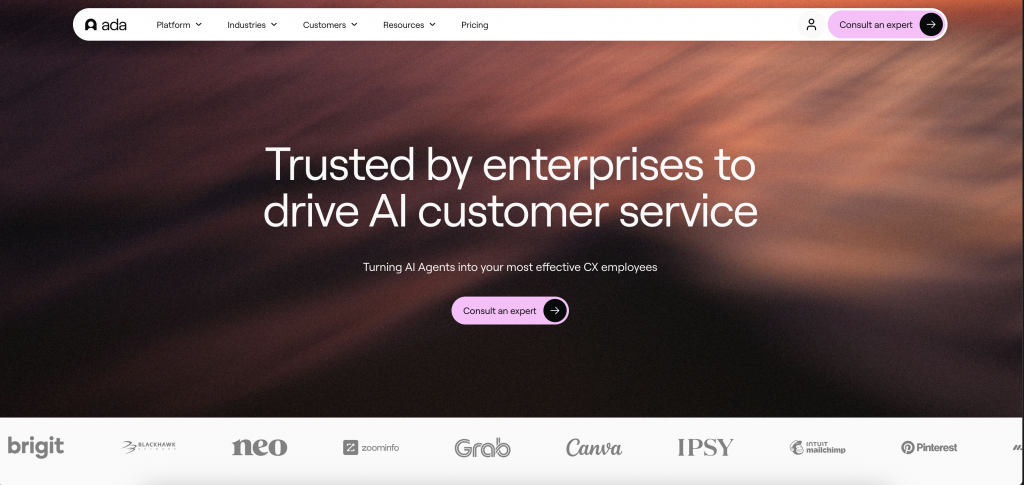
Ada is a no-code customer service automation platform founded in 2016. It is designed to simplify chatbot creation so that support teams without technical expertise can deploy and manage automated conversations. Ada focuses on scaling automation for repetitive queries through structured flows and quick setup.
The platform is widely adopted in retail, travel, and consumer brands that want to automate FAQs, transactional updates, and basic customer engagement at scale.

YourGPT is an AI-first, no-code platform that helps businesses create and manage custom AI agents for customer support, sales, workflow automation. It combines messaging, workflow automation, and analytics with full control over data, integrations, and security, making it adaptable across industries.
The platform includes an AI agent builder, live chat, helpdesk tools, self-learning AI, and multilingual support. This allows businesses to provide real-time assistance and engagement at scale. YourGPT is adopted by SaaS providers, e-commerce companies, and enterprises that want to improve customer interactions with AI-driven efficiency.
While both platforms improve customer communication, YourGPT stands out as an AI-first solution with stronger training options, self-learning capabilities, and broader customization. Ada is strong for fast deployment and handling FAQs but offers less flexibility for advanced automation.
Compare how YourGPT and Ada perform across AI, integrations, training, and support channels. This side-by-side breakdown shows which platform is better aligned with your business requirements.
| Feature | YourGPT | Ada |
|---|---|---|
| Easy Setup | Yes | Yes |
| Training and Data | Yes multi source training with custom context | Yes supports training but limited flexibility |
| Self Learning AI | Yes | No |
| Persistent Memory | Yes | No |
| Advanced Automation | Yes | No predefined flows only |
| Multi Step Workflows | Yes | No |
| API and Backend Actions | Yes | Limited |
| Omni Channel web mobile voice social | Yes | Partial covers main enterprise channels |
| Unified Inbox | Yes | No |
| Mobile App | Yes | No |
| Web Extension | Yes | No |
| Integrations | Yes Shopify HubSpot CRMs APIs custom endpoints | Yes Salesforce Zendesk Gorgias limited set |
| Brand and Workflow Control | Yes tone fallback logic adaptive paths | No standard flows only |
| Analytics and Reports | Yes advanced analytics | Yes basic dashboard |
| AI Features advanced models | Yes | No |
| Security and Compliance | Yes SOC2 GDPR | Enterprise grade compliance |
| Pricing | USD 4188 yearly usage based | USD 10000 to 70000 yearly inquiry based |
| Best Fit | SMBs mid market enterprises needing automation memory omni channel mobile extension | Large enterprises needing fast rollout structured flows and stable enterprise integrations |
YourGPT offers a no-code setup that makes it easy to deploy your first agent in minutes. Businesses can quickly get started without technical expertise, and when more complex needs arise, the AI Studio provides a drag-and-drop interface for advanced training, workflow design, and automation logic. This means YourGPT can scale from simple FAQ handling to sophisticated AI-driven operations within the same platform.
Ada is also designed for quick deployment. Its no-code visual interface is built for enterprise teams that want to launch with standardised FAQ handling and escalation flows. It works well for structured support cases but offers less flexibility for advanced customisation.
YourGPT is designed to learn from the sources that matter most to your business. It supports multiple content ingestion methods and can train on:
This approach ensures YourGPT delivers accurate answers, adapts to real-world scenarios, and remains aligned with business-specific requirements.
Ada, on the other hand, is limited to predefined knowledge sources. It can handle general FAQs and routing but does not offer flexible ingestion or the ability to train deeply on custom business data.
YourGPT integrates broadly across platforms and channels:
This makes it easy to manage conversations in one place while also automating tasks and triggering real-time business actions.
Ada offers a more limited integration scope:
YourGPT provides full control over brand tone, fallback logic, and workflow paths. Agents can adapt in real time, escalate to humans, or switch contexts mid-conversation, giving businesses more flexibility.
Ada also delivers consistent and reliable workflows that work well for enterprises needing standardisation. While its brand tone and adaptive conversation logic are more structured, this approach ensures predictable experiences across large teams and customer bases.
YourGPT is designed as more than a chatbot. It delivers advanced AI features that adapt to business needs:
Ada, in comparison, focuses on FAQ resolution and routing. It works well with structured flows but:
When comparing YourGPT and Ada, the difference in pricing is clear.
YourGPT offers transparent and predictable pricing.
Pricing is based on AI credit usage without per-seat charges. This ensures costs remain predictable, even during seasonal spikes or periods of rapid growth.
Ada, on the other hand, uses a performance-based model that ranges from $10,000 to $70,000 annually, depending on the number of inquiries resolved and enterprise features required. While this can work for large organizations with high support volumes, it often feels unclear for small to medium businesses and can quickly become expensive as usage increases.
YourGPT supports more channels, including web chat, WhatsApp, Messenger, Telegram, LINE, Slack, and voice. Ada mainly works with web chat and some social channels but does not have voice AI.
No. Ada is best for simple tasks and FAQs. YourGPT offers an AI Studio that lets you build advanced workflows combining AI and human actions.
YourGPT uses credits instead of charging per seat. This makes costs easier to plan as your team grows. Ada’s pricing increases with conversation volume, so scaling can become expensive.
Yes. YourGPT can capture leads, qualify them, and route them to sales teams in addition to handling support. Ada is mostly used for support and FAQs.
Ada is good for small businesses that need fast setup for FAQs. YourGPT also works for small teams but gives more options if you want to scale into advanced automation later.
Ada has drag-and-drop templates that make setup very quick. YourGPT is also easy to start but may take more setup if you want to create detailed workflows.
Yes. YourGPT has built-in voice AI for inbound and outbound calls. Ada does not have native voice support.
Both connect with popular CRMs and e-commerce systems. YourGPT also supports APIs and webhooks, giving more flexibility for custom integrations.
YourGPT can learn from PDFs, Notion docs, Google Sheets, websites, and APIs. Ada mainly learns from FAQs and knowledge base content.
YourGPT usually delivers better ROI because its automation handles complex tasks and pricing is credit-based. Ada works well for FAQs but becomes costly when usage grows.
Choosing between YourGPT and Ada depends on how you see automation fitting into your customer journey. Both platforms bring value, but they are built with different goals in mind.
YourGPT is designed as a complete platform. It unifies support, sales, and operations into one system, connects with CRMs and business apps, and allows you to train AI on your own data. This means you can manage conversations across web, WhatsApp, Messenger, email, and even voice with one consistent workflow.
Ada, on the other hand, focuses on speed and simplicity. It is built for companies that need to automate repetitive FAQs, transactional requests, and other self-service tasks quickly, without requiring technical setup.
For businesses that want to reduce basic ticket volumes and deploy AI without complexity, Ada is a practical choice. It keeps the focus on quick wins and scaling self-service at a lower barrier to entry.
For companies preparing for growth, needing more control, and aiming to connect AI directly to core systems, YourGPT is the stronger option. It delivers measurable efficiency, supports more complex workflows, and adapts as business needs evolve.
Both platforms deliver results. The choice comes down to whether you want fast FAQ automation or a future-ready AI platform that spans every channel and business function. customers across every channel, YourGPT is the more future-ready option.
Compare YourGPT and Ada to see which platform helps you respond faster, cut costs, and keep customers happy.
No credit card required · Full access · Cancel anytime
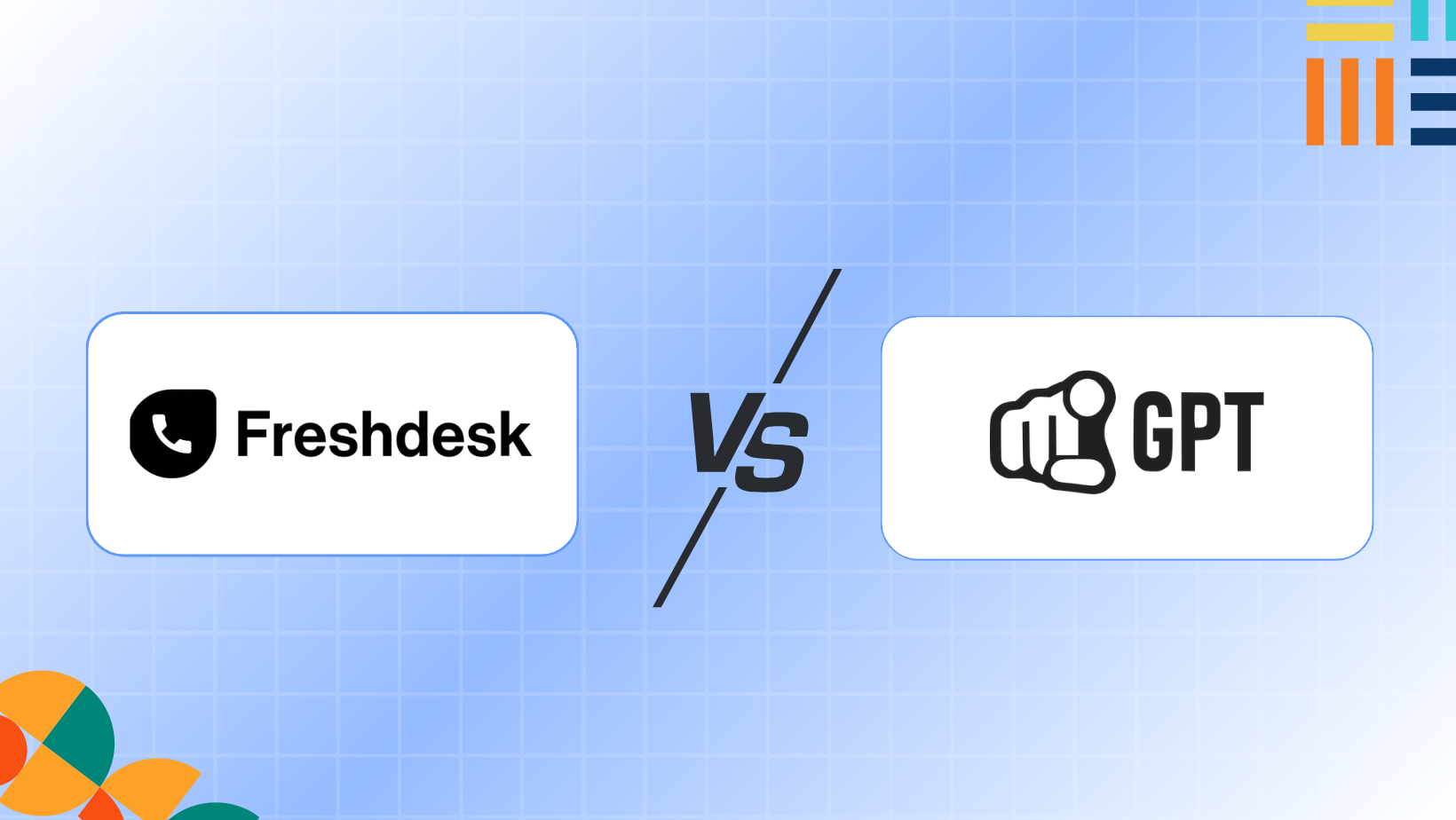
TL;DR: The Core Difference YourGPT Built around AI agents that handle conversations, run workflows, and resolve issues on their own across channels. The goal is to reduce incoming support volume by solving problems before they reach a human. Freshdesk Built around structured ticketing. It focuses on organizing queues, managing SLAs, and tracking agent performance. Humans […]


TLDR Zendesk works well for ticket-based support, but it can feel limiting as teams rely more on automation and multi-channel conversations. This guide compares 7 practical Zendesk alternatives that reduce manual handling and let AI manage common requests across chat and messaging tools Zendesk is one of the popular customer support platform has been around […]


WooCommerce gives store owners flexibility, but that flexibility comes with trade-offs as a store grows. Over time, pages slow down as plugins accumulate, carts get abandoned without obvious reasons, and customer questions start consuming more time than expected. These issues rarely appear all at once, but they compound quickly and directly affect revenue. After working […]

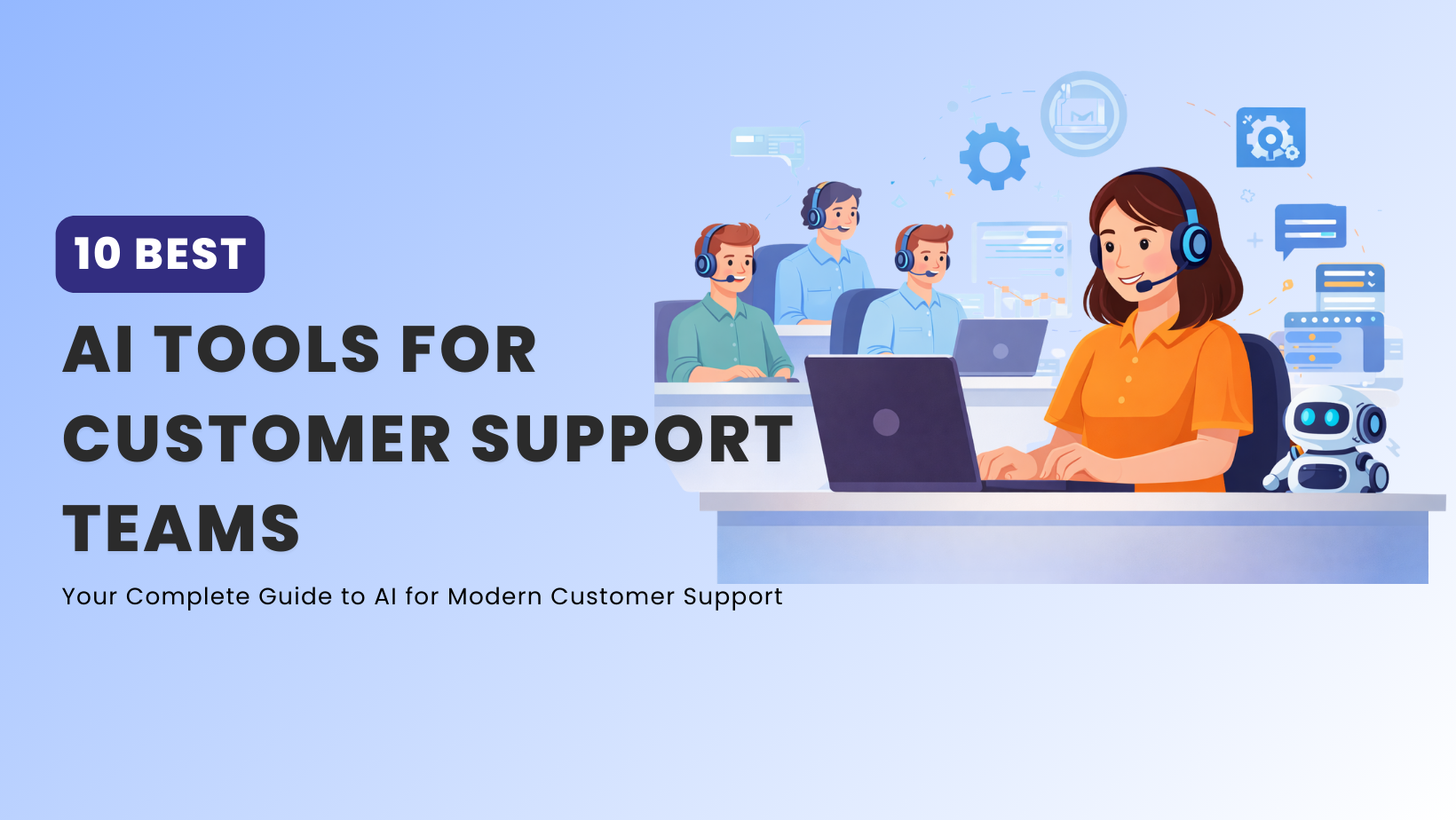
AI customer support tools now form a core part of how many teams handle growing contact volumes and rising customer expectations. At the same time, the market has become crowded, with many similar-looking products and overlapping claims, which makes evaluation harder for support leaders. The AI customer service segment grew from about $12 billion in […]

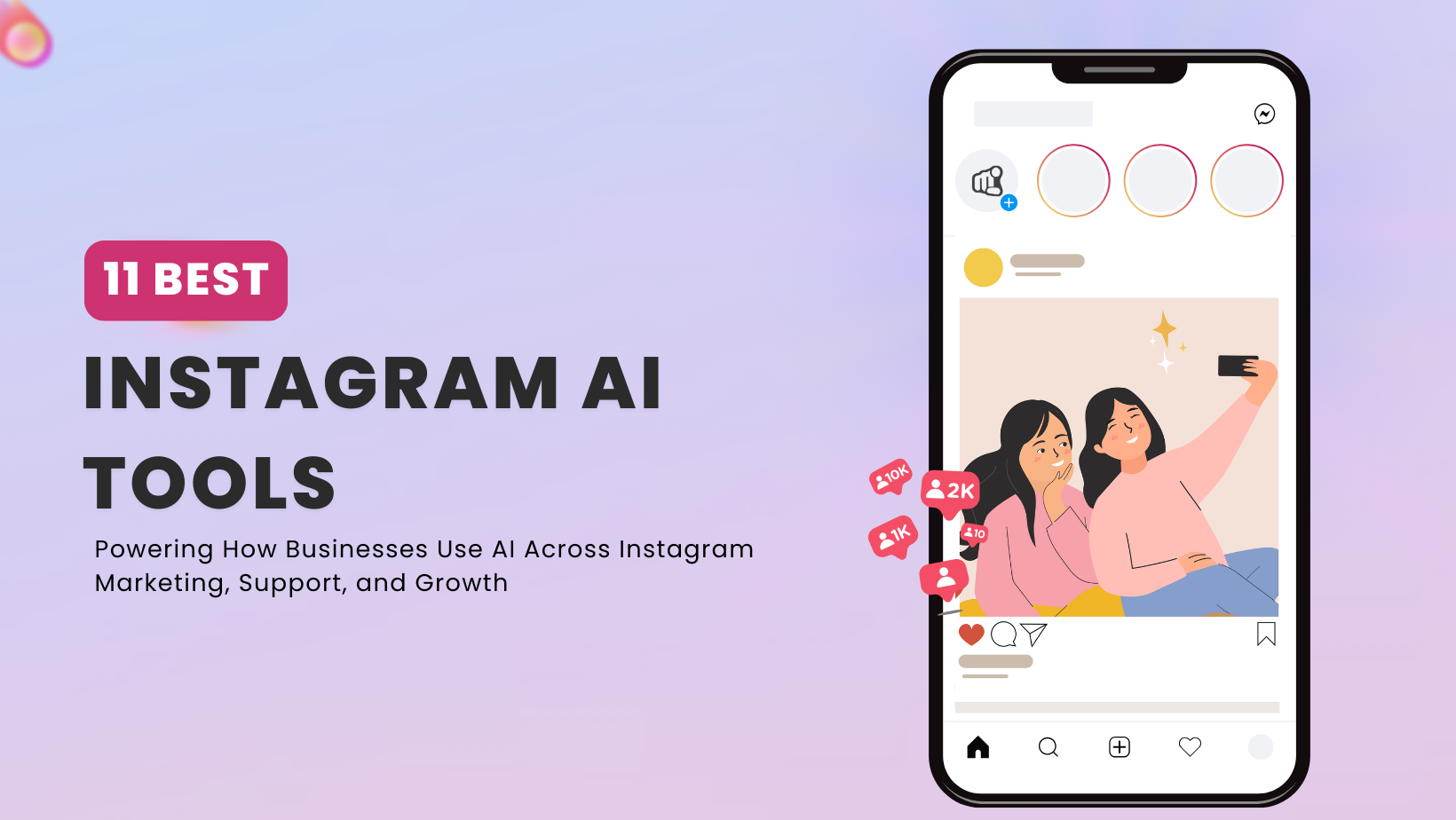
If you run an Instagram account for business in 2026, you already feel the pressure. The platform has 2 billion monthly users now. About 44% of people on Instagram shop every week, and most expect you to reply to their messages in under an hour. Between creating posts, Stories, and Reels, answering DMs, responding to […]

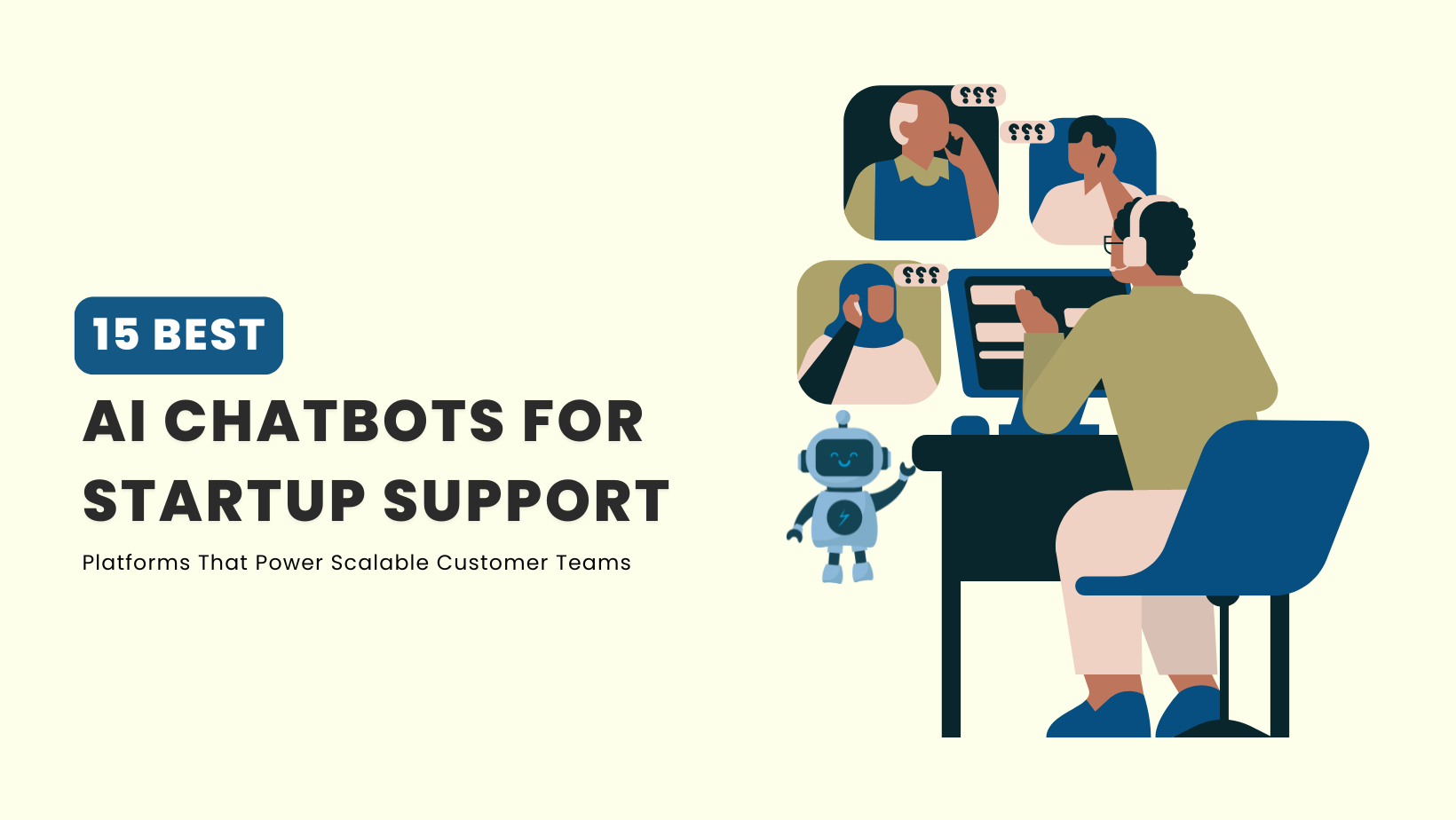
TL;DR Growing startups struggle with rising support volume and limited teams. AI chatbots automate repetitive queries, keep responses consistent, and scale support without extra headcount. Based on 48+ hours of our testing, we evaluated platforms across setup time, accuracy, AI capability, pricing transparency, and real-world performance for startups. AI chatbots help startups manage customer support […]
